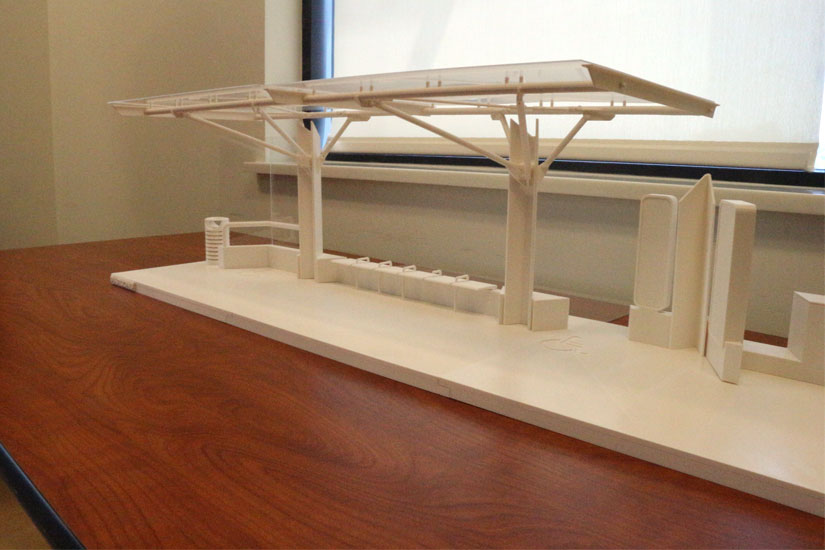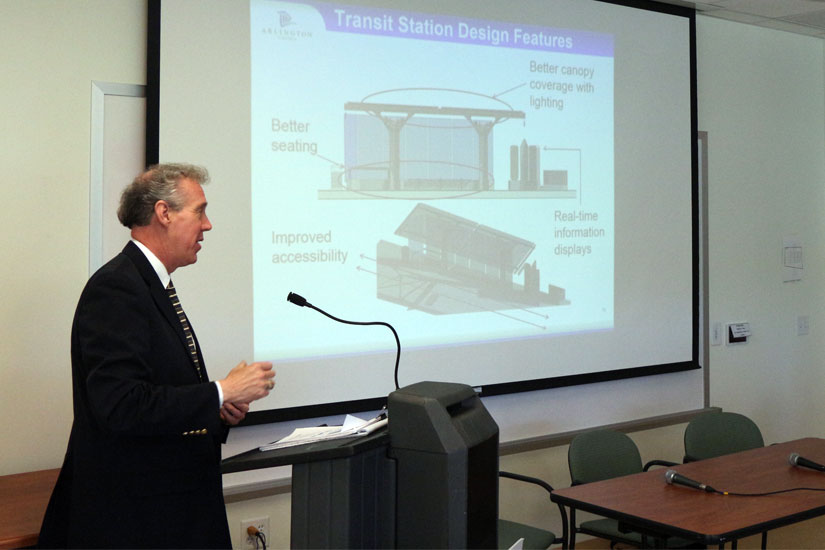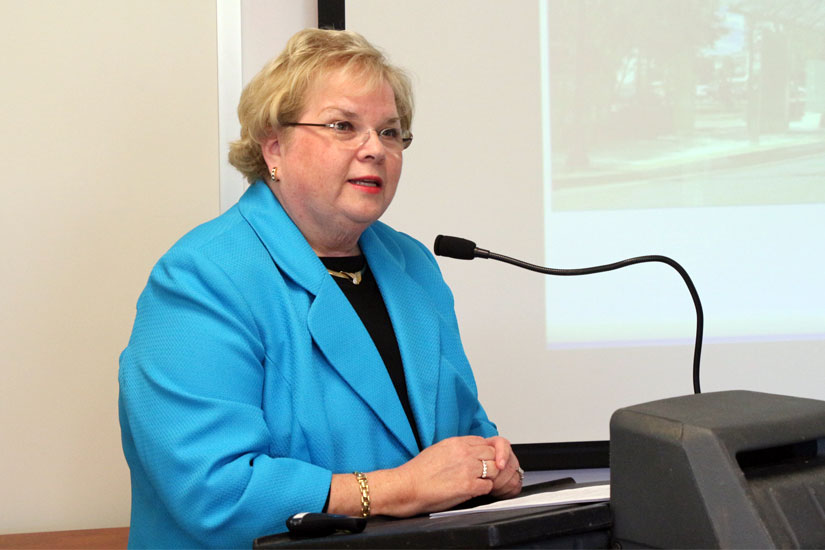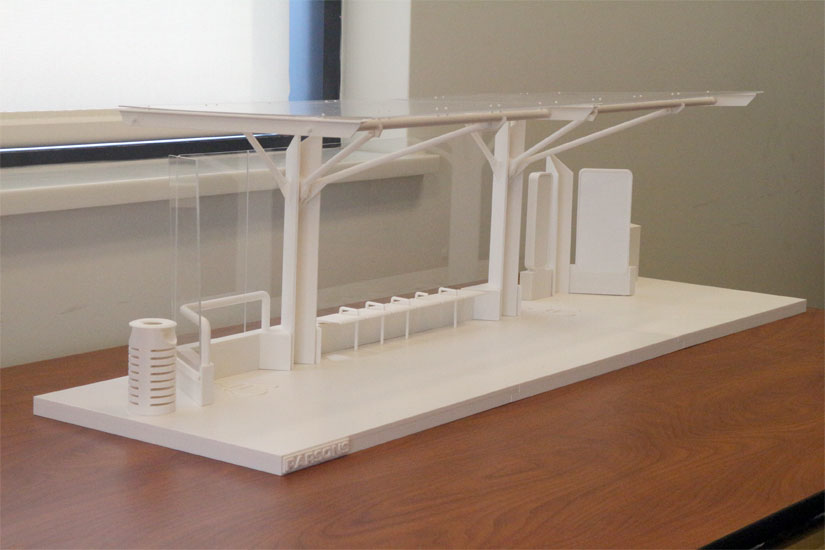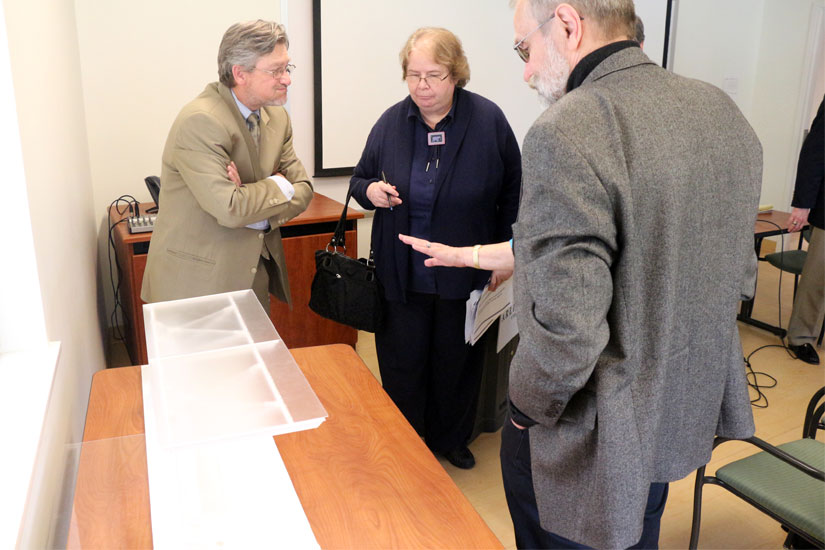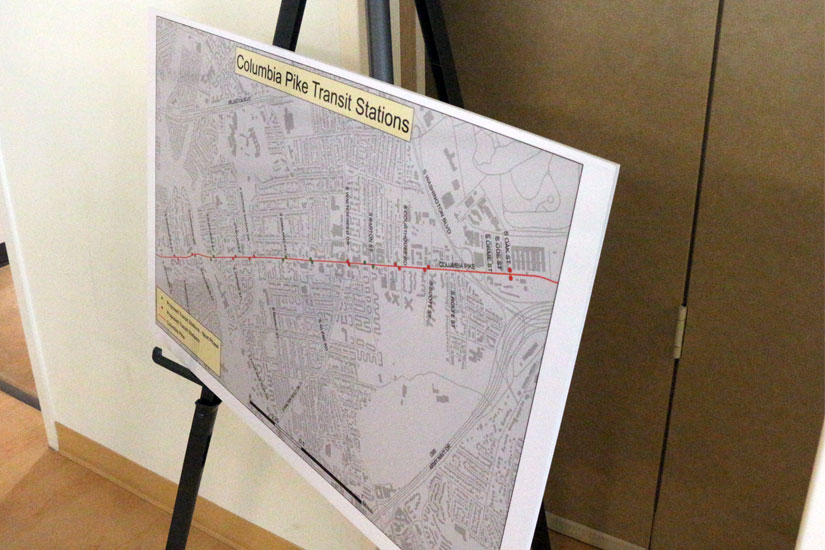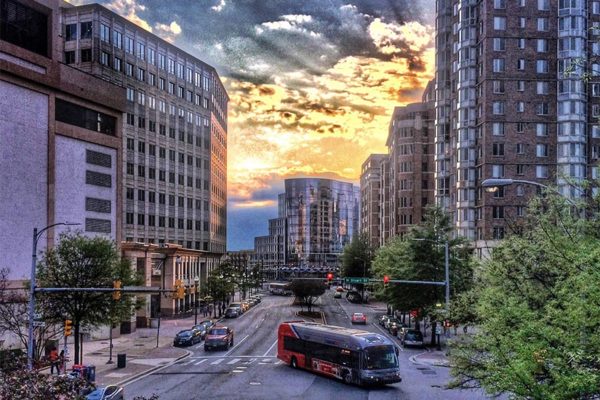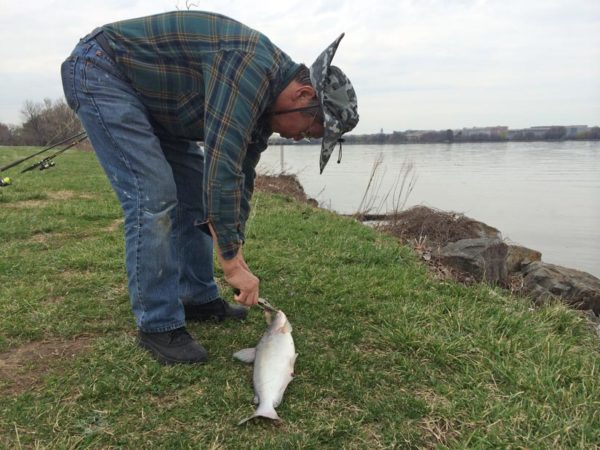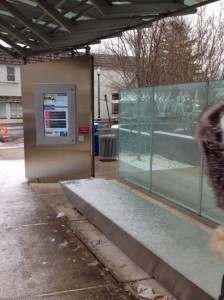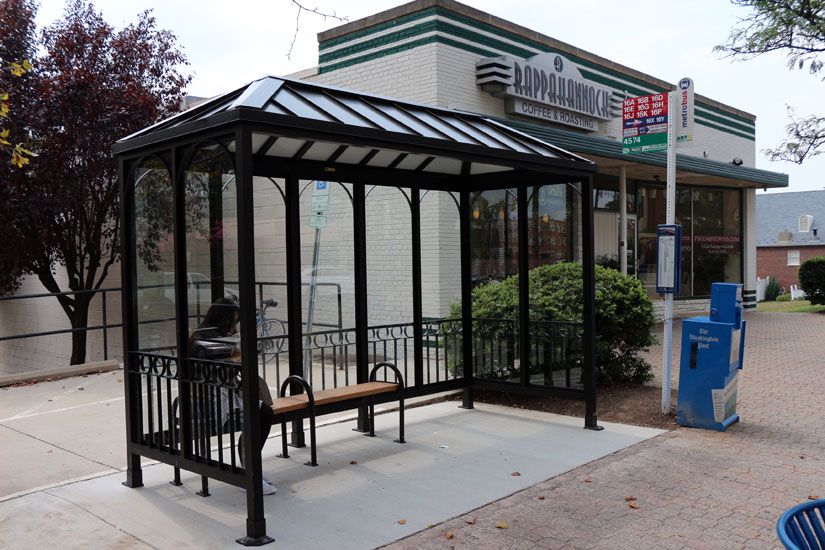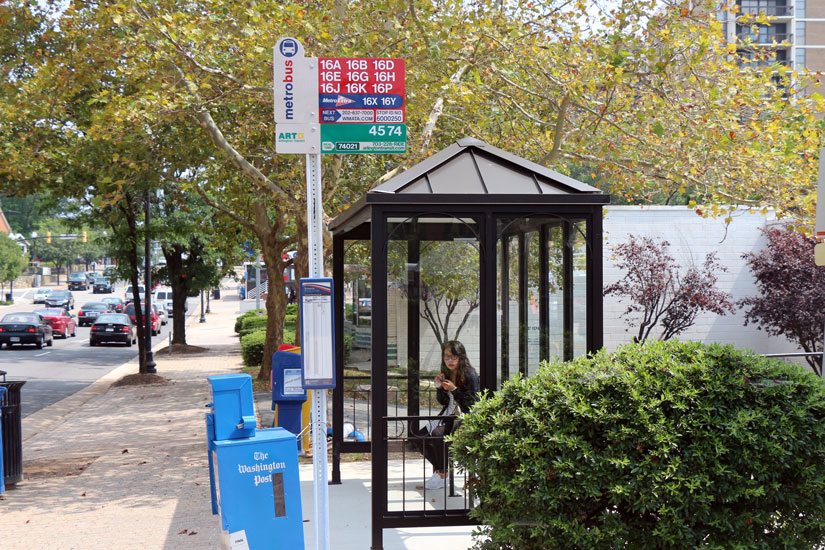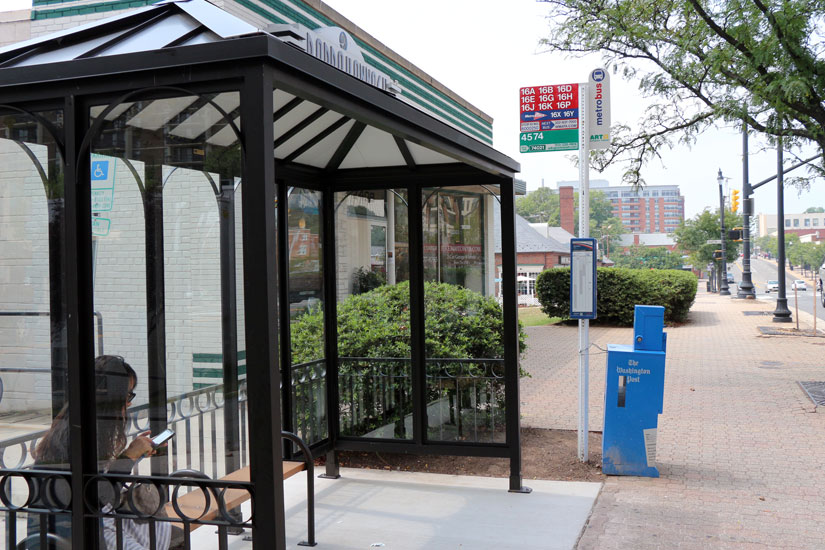(Updated at 3:55 p.m.) The county’s plan for “Super Stop” bus stops on Columbia Pike, which led to the much-maligned $1 million Super Stop at the corner of the Pike and S. Walter Reed Drive, has been scrapped in favor of a more affordable design.
The county announced this afternoon that the new plan calls for building the 23 additional transit centers along the Pike for about 40 percent less than the previous budget, dropping the total price from $20.9 million to $12.4 million. The cost of individual stations will be between $362,000 and $672,000.
The freshly-redesigned stops — which were designed by the county and a consultant — will feature six covered, concrete seats, as opposed to the Super Stop’s steel seats. The canopies, which on the Super Stop did little to keep out the elements, will be lowered in height from 13 feet to 10 feet and the angle reduced from 10 degrees to 1.5 degrees. The total canopy coverage will also increase from 243 to 295 square feet on standard transit centers. In addition, side windscreens will be added to enhance weather protection.
“Our goal was accountability, to pinpoint what went wrong in the project management on the Super Stop design, to account for how the money was spent and, going forward, to ensure the transit stations will be built effectively,” County Manager Barbara Donnellan said at a press conference held at the Arlington Mill Community Center on Columbia Pike. “Our new design firm has produced… a transit station with a price tag far below the Walter Reed prototype.”
The new stops, which the county is rebranding from “Super Stops” to “transit centers,” have a modular design, meaning each is built with standardized parts that can be added on to in order to create larger stations, as needed. A “single-size” station will cost $362,000, a “standard” transit center will cost $469,000, and an “extended” transit center — planned for the north side of the Pike at S. Glebe Road, for example — will cost about $672,000.
The county will soon issue a request for proposals, after which it will undergo a design phase, with hopes to start work on the first eight stops by FY 2017. The county will directly oversee construction, whereas WMATA was the construction lead on the original Super Stop — something Arlington officials blamed in part for project delays and high costs.
Donnellan said the review of why the Super Stop was so expensive and took too long to build isn’t finalized yet, but hopes to announce its findings within two months.
“I am disappointed the review is not done yet,” she said. “We are working really collaboratively with Metro to finalize the information. It’s sort of like a reconstruction of the information that’s been compiled over the last 10 years.”
The first eight stops to be built are expected to be on either sides of the Pike at S. Glebe Road, S. Oakland Street, S. Barton Street and S. Buchanan Street. As for the Walter Reed Super Stop, it won’t be torn down, said Transit Bureau Chief Stephen Del Giudice. Instead the county will “examine what can be done to improve its performance and weather protection.”
The county surveyed 732 individuals, 515 of whom were users of the Walter Reed stop, and used their input — largely complaints about the lack of weather protection — to design the new transit centers. The survey respondents all liked, however, the real-time information display and the “overall aesthetic” of the stop. Both elements have been incorporated into the new stops.
The county’s press release on the topic, after the jump.


